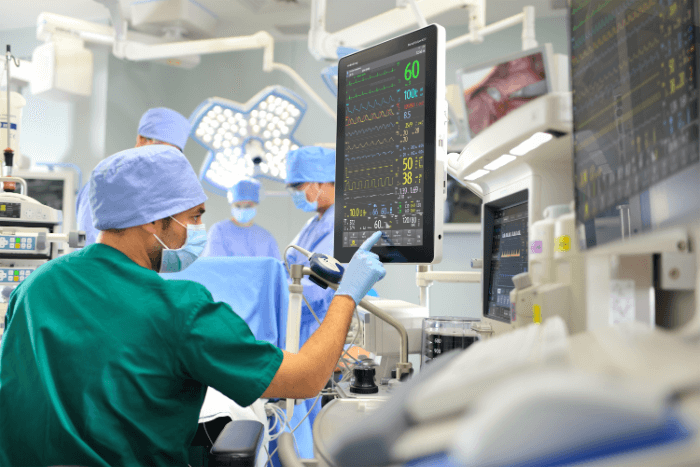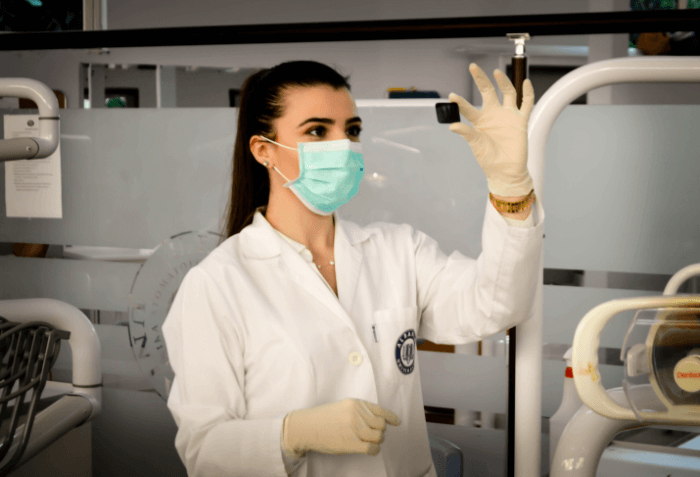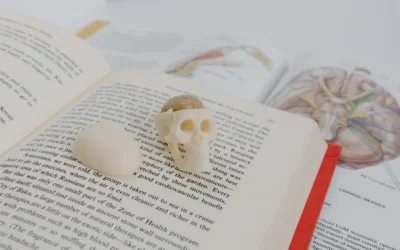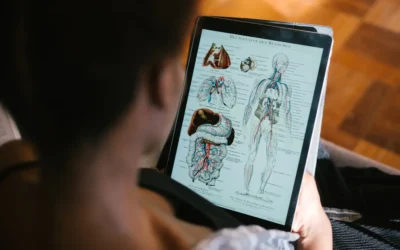Medical students are often confident in stating their desire to become a doctor. However, they’re often less sure of the specific speciality they’re hoping to pursue. By no means do you need to have your whole career path mapped out at the beginning of medical school, but at the end of the degree, you will have to make the decision whether to specialise or not.
It’s therefore pretty important to know what options are available once you graduate.
Generally, healthcare professionals are divided into primary care practitioners and specialists. Primary care practitioners are more generalised, and include general practitioners (GPs) and paediatricians. They see a wide range of patients and refer difficult or specific cases to specialised doctors.
If you’re looking to experience life as a medical student before university, try browsing our Medicine summer courses to develop your clinical skills and start exploring different medical specialities.
Otherwise, read on for our guide to the different areas of medicine.

Surgical & Procedural Specialities
Surgery
Surgery naturally comes with the most physical interaction and hands-on approach of all medical specialities. It requires you not only to have good control over your hands, but more importantly to be able to think and act quickly and decisively. There’s no time to check the textbooks when something unexpected happens in the operating theatre.
This is one discipline where doctors can instantly see the results yielded by their work and therefore comes with huge satisfaction. When things go wrong, however, you need to be able to deal with the consequences on both a personal and professional level, which is arguably the most tricky aspect of being a surgeon.
Keep in mind that surgeons have to work extremely long shifts, and even on their days off can be on-call. This means that if you’re needed for an urgent operation, the hospital will call you in to do it, making the case your responsibility.
Surgical Specialities
Here are the surgical specialities available in the NHS (National Health Service):
Cardiothoracic surgery operates on the heart, lungs and everything else in the chest.
General surgery has the advantage of doing several different operations, which many people enjoy. However, not specialising further in one area of the body means that it’s more difficult to ‘master’ a certain procedure or group of procedures.
Neurosurgery operates on the brain. This can be one of the toughest specialities for the surgeon’s own mental wellbeing, as described by neurosurgeon Henry Marsh in ‘Do No Harm’.
Oral and maxillofacial surgery operates on the mouth and face.
Trauma and orthopaedic surgery concentrate on bones, joints and muscles.
Otolaryngology operates on ENT (ear, nose and throat) and the canals connecting the three.
Paediatric surgery performs surgery on infants and children. There are also subspecialities, for example, a paediatric urologic surgeon operates on urologic problems in children.
Plastic surgery. For a reconstructive plastic surgeon, this involves repair, reconstruction and replacement of parts of the body that are either disfigured (don’t look right) or dysfunctional (don’t work properly). On the other hand, a cosmetic plastic surgeon improves the appearance even when it’s not medically needed.
Urologic surgery operates on the male and female genitals, as well as the urinary tracts. This includes the kidneys and bladder.
Vascular surgery manages diseases involving the blood vessels and lymph vessels. Most of a vascular surgeon’s work tends to be done with catheters (a small tube inserted into a blood vessel in the body) instead of open surgery.
Anaesthesia
Anaesthesia goes hand-in-hand with surgery. An anaesthesiologist cares for the patient before, during and immediately after a medical procedure. Their job is to give the correct amount of anaesthetic, usually a gas or intravenous fluid (or both) that makes the patient unconscious/insensitive to pain and then monitor the patient’s reactions.
Obstetrics & gynaecology
This is a combination of two disciplines required in women’s health: obstetrics is concerned with pregnancy and childbirth, while gynaecology deals with the diseases or problems specific to women and girls, especially to do with the reproductive tract. This includes a substantial amount of surgical work, such as Caesarean sections.
Ophthalmology
This is a speciality concerned with eyes and maintaining eyesight. In ophthalmology there is less need for interaction with other healthcare providers. An ophthalmologist is responsible for the prevention, diagnosis, treatment and even surgery.
Clinical Specialities
General internal medicine
Doctors specialising in general medicine are called physicians or internists. An internist’s job consists of preventing, diagnosing and managing a variety of diseases. The ‘internal’ label comes from the fact that internists do not operate, but rather use other means to try to diagnose and treat diseases.
General medicine is an umbrella term consisting of many specialities (around 30), some of which are:
Cardiology, which deals with diseases of the heart and blood vessels.
Dermatology, which deals with diseases of the skin.
Neurology, which deals with diseases of the brain, spinal cord and nerves.
Paediatrics
A paediatrician acts as a GP for children, from birth to adulthood. A lot of time is spent on prevention of problems, as well as assessment of growth and development. A paediatrician has to be able to communicate well with children, young adults and parents. They must also relay information to and from GPs, schools, social workers and other parties.
Psychiatry
Psychiatry is concerned with the assessment, diagnosis and treatment of mental illness, as well as behavioural and emotional disorders. Psychiatrists work in a variety of settings: hospitals, clinics, schools and more. As trained doctors, they can prescribe and manage medications for their patients.
Psychology, on the other hand, is not a medical speciality and psychologists focus primarily on psychotherapy as a means to help their patients. If you’re interested in exploring psychology, our Psychology & Neuroscience course is the perfect opportunity to expand your understanding and explore university life.
Emergency medicine
An emergency room doctor treats all patients that are admitted to the Accident and Emergency room (A&E) no matter their medical conditions. If they require surgery, the on-call trauma surgeon operates. The working conditions for an emergency doctor are often hectic and unpredictable, and the decisions they make play a huge role in the outcome for the patient.

Diagnostic & Investigative Specialities
Pathology
Patient contact is limited in pathology as the main role of a pathologist lies in the lab. Examining human tissue under the microscope, running and interpreting tests on blood or urine samples, and collecting patient information to come to a diagnosis are the main duties of a pathologist. However, they do work in close communication with other specialists.
There are three main subspecialities of pathology: chemical pathology (think test tubes), histopathology (think microscopes), and medical microbiology and virology (think petri dishes and tissue cultures).
Radiology & oncology
Radiology is the study of images of the body to confirm or make a diagnosis. A radiologist looks at X-rays, CT scans and more. With the introduction of interventional radiology, this role has now expanded to include more patient contact. This means that radiologists are now also involved in treatment as well as diagnosis.
Oncology is the non-surgical management of cancer, using both radiotherapy and chemotherapy. Clinical oncology is very patient-centred and the oncologist (who also heads the multidisciplinary team in most cases) is responsible for following up with the patient after treatment.
General Practice & Public Health
General practice
The general practitioner (GP) is someone that most people have had contact with in their life. The first point of contact for non-emergency medical problems, a GP can be seen as a filter in the medical world. Cases requiring specialised care are referred to the correct specialist and the rest are managed by the GP themselves. This requires a very broad knowledge of different diseases in different body systems to allow the GP to quickly diagnose and refer patients. This does, as is the case with general surgery, make it difficult to have in-depth knowledge in one specific area.
Public health medicine
Public health doctors head a multidisciplinary team to promote overall health in the population, working on the prevention of disease and improving quality of life. In public health there are also possibilities to work internationally, e.g. with the World Health Organisation (WHO).
Occupational medicine
A practitioner in occupational medicine is responsible for maintaining the health and wellbeing of a specific workforce. The duties, therefore, differ greatly depending on the company, organisation and sector of work. It’s noteworthy that part-time work is very common and accessible in occupational medicine, depending on the size of the workforce.
Sport & exercise medicine
Sport and exercise physicians treat athletes and sports-related injuries. They frequently head the multidisciplinary team responsible for an athlete or group of athletes. Government positions in a hospital or university are limited, so many sports physicians work in the private sector.
Academic Medicine
Clinical academics
Clinical academics are doctors who combine their work with research and teaching. This is possible across all specialities from anaesthesiology to public health. Clinical academics are employed by a hospital, where they have clinical duties, and at a university, where they teach students and conduct research. The research is usually patient-based and data is collected from the hospital.
The Future of Medical Specialities
This list details all of the existing medical specialities, but it’s important to note the rise of ‘systems medicine’ as a way of looking at patients and diseases.
Currently, medical specialities are defined based on which organ is affected. For example, a cardiologist specialises in diseases of the heart. Research is increasingly showing that this is an outdated way of dividing medicine up, since a lot of diseases have the same mechanism but affect different organs.
Systems medicine is a new way of looking at diseases based on which mechanisms they have in common. For example, if mechanism A goes wrong, it can either cause disease X or disease Y, but these diseases happen in completely different parts of the body with different symptoms. If we know that the mechanism A is involved in both of these, and we already have a drug that works on disease X, then it might also work in disease Y – and voila!
That was just one simple example, but the actual real-world applications are countless.

By Oxford Scholastica Academy
The Oxford Scholastica Academy was founded in 2013 by Jamie and Sophie, two former University of Oxford students, who have built a dynamic education company dedicated to empowering young people to chart their path in the world and make it better.




